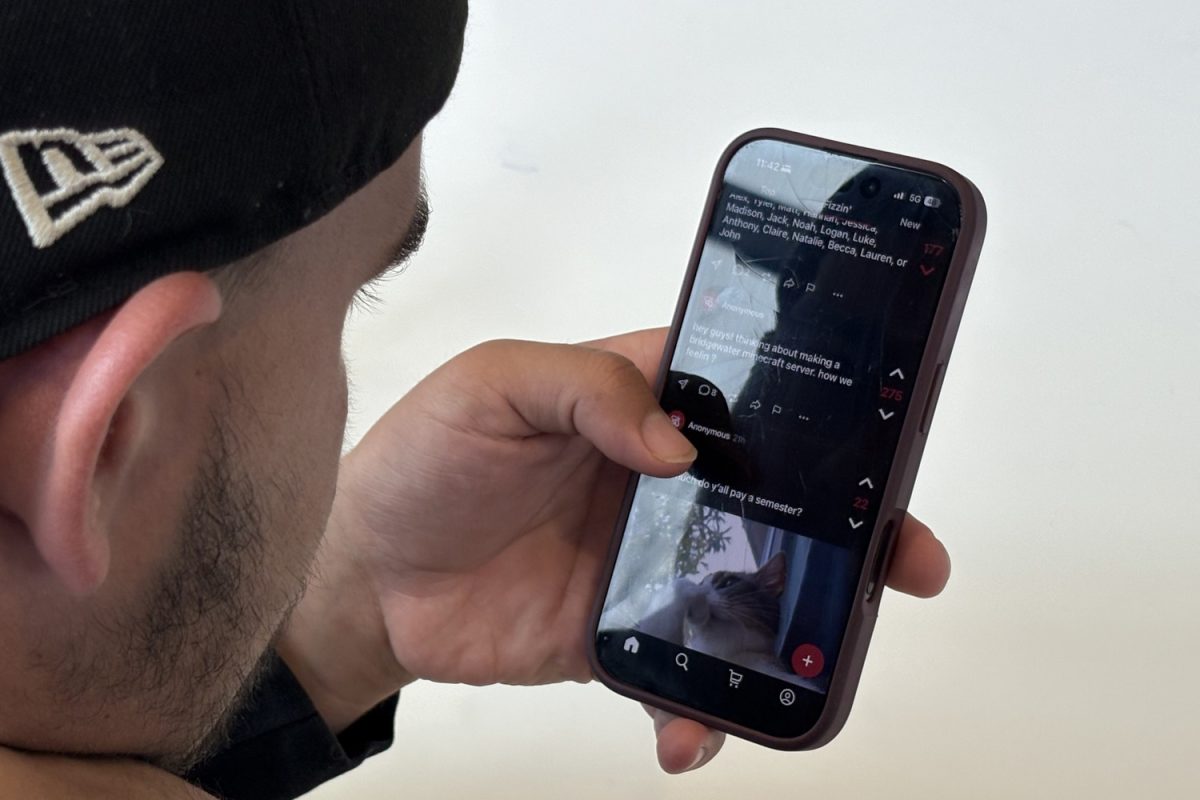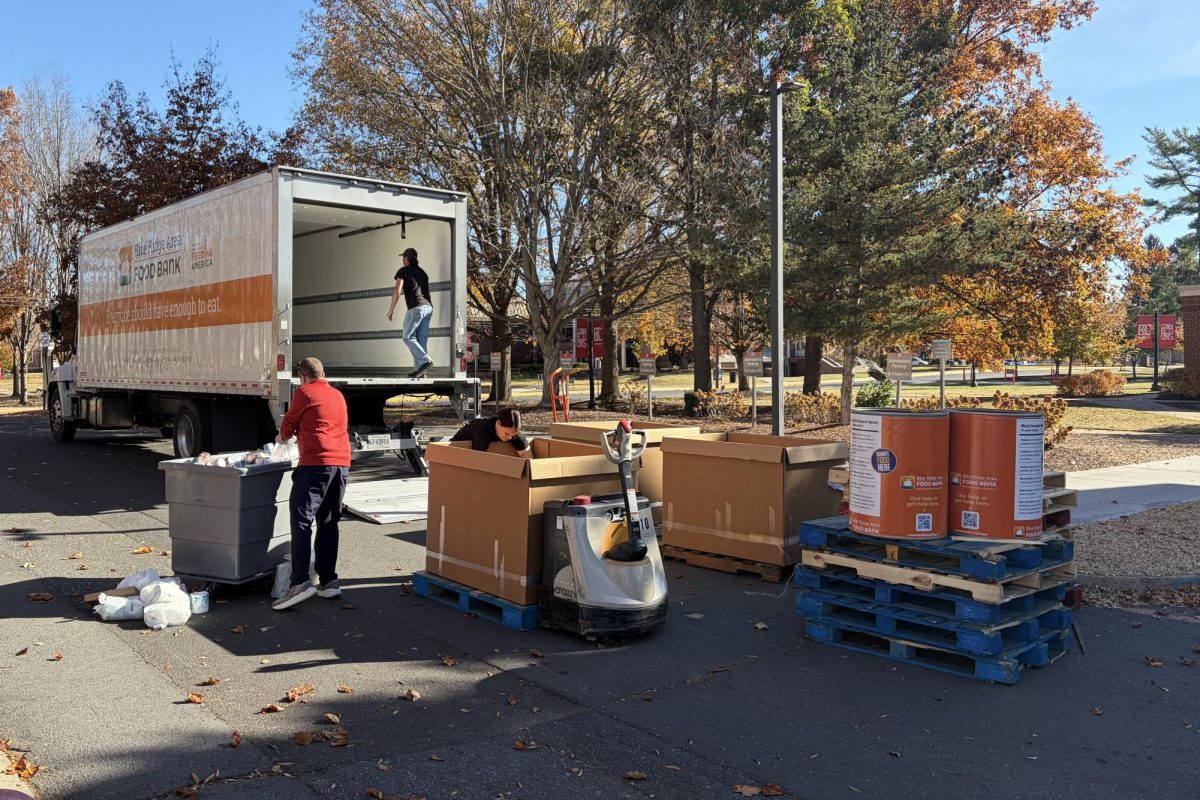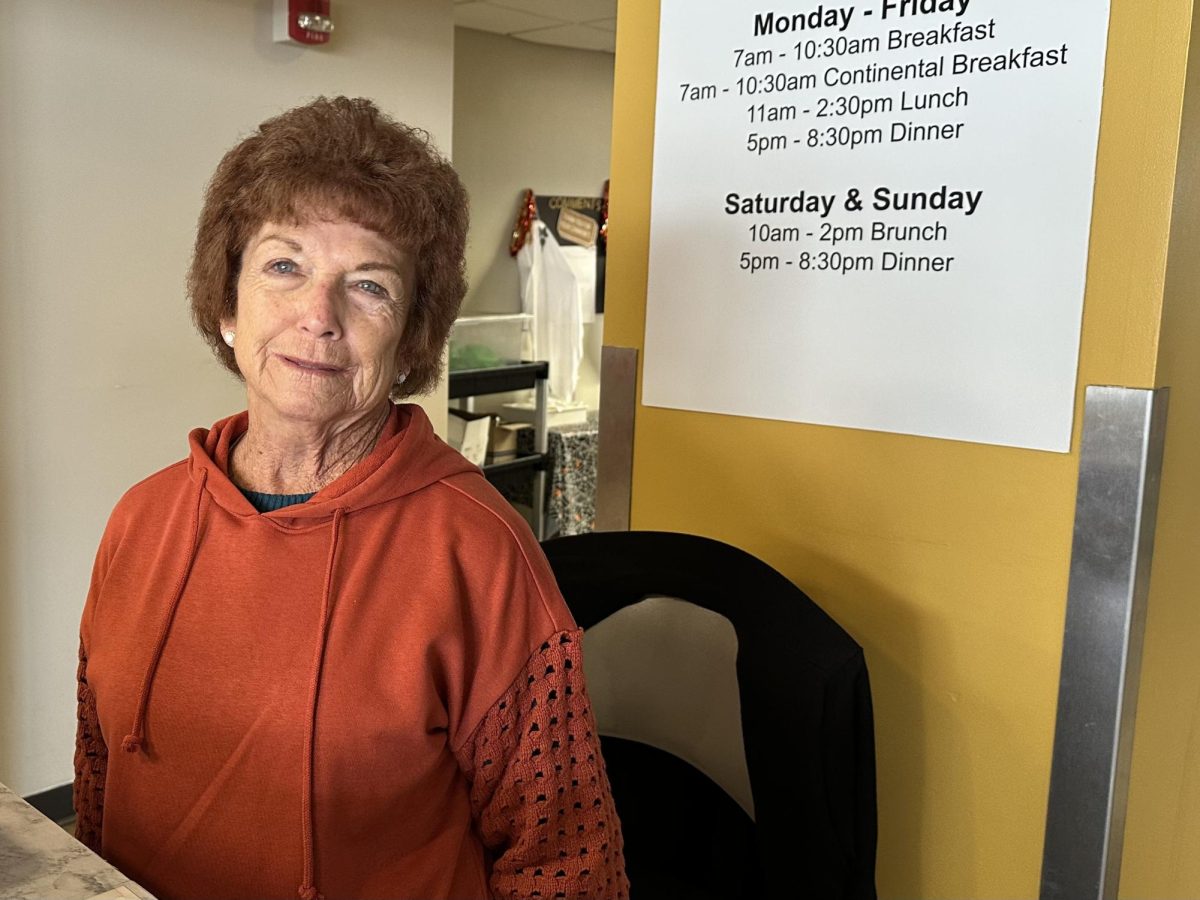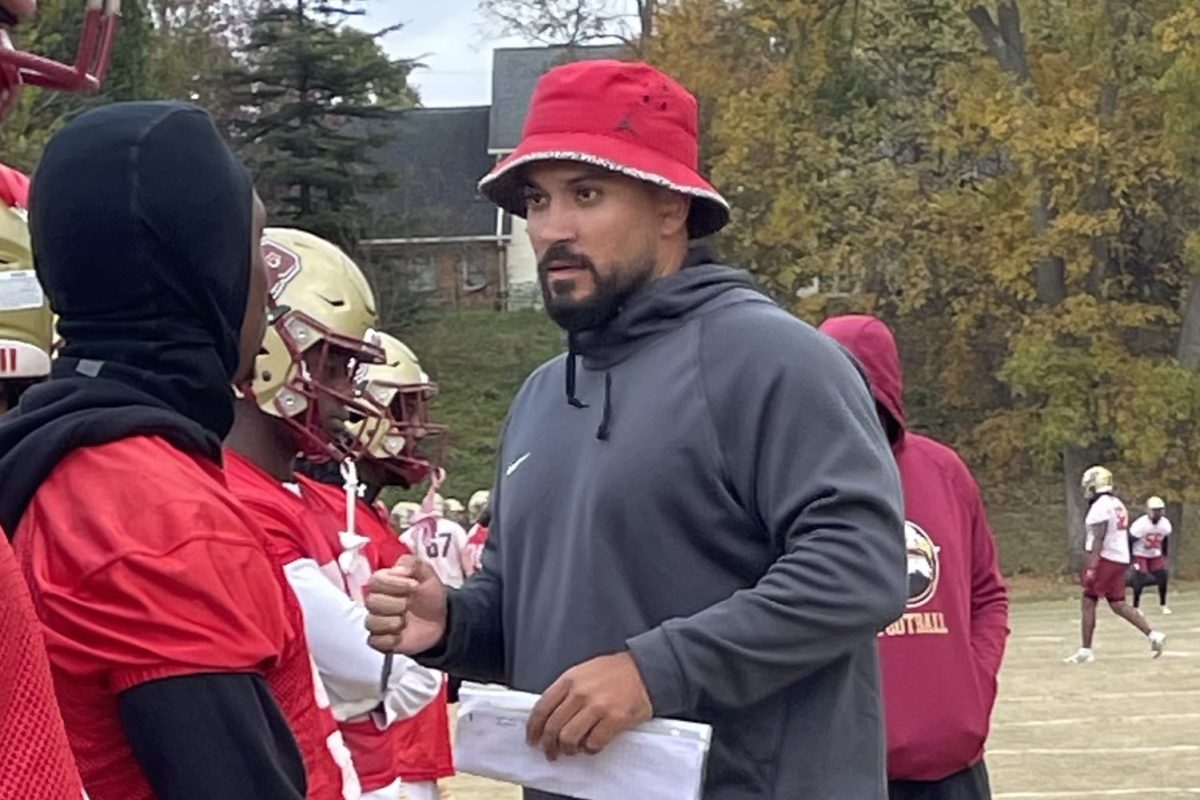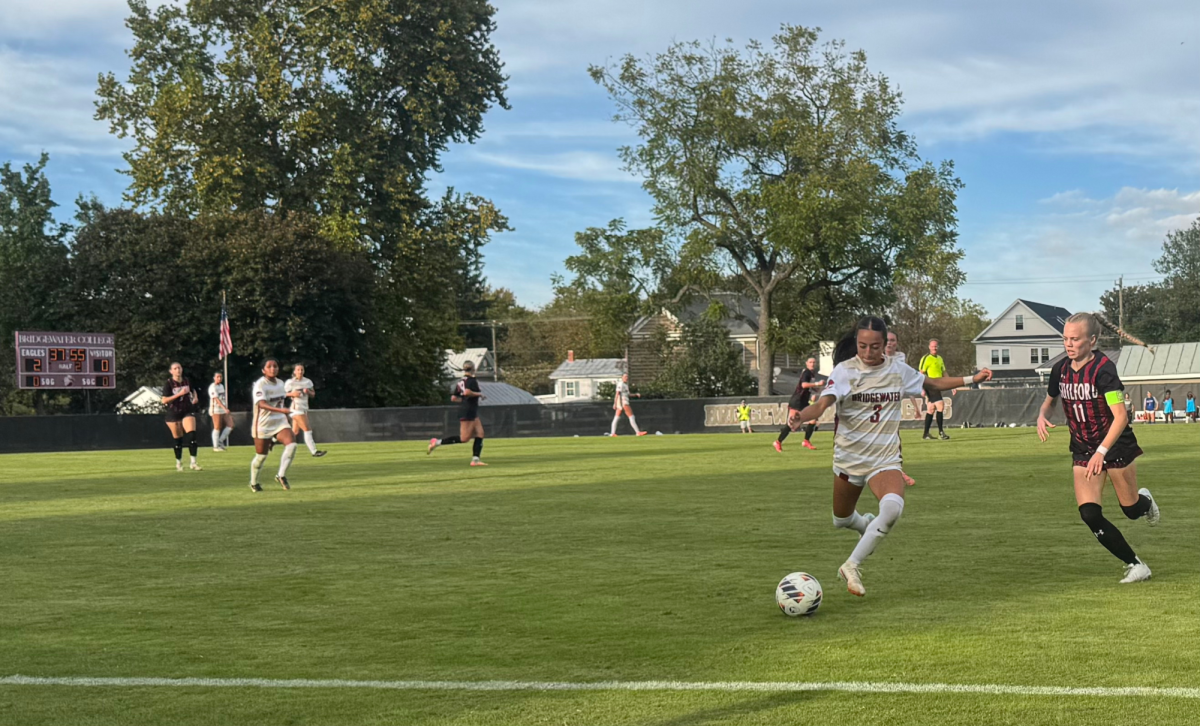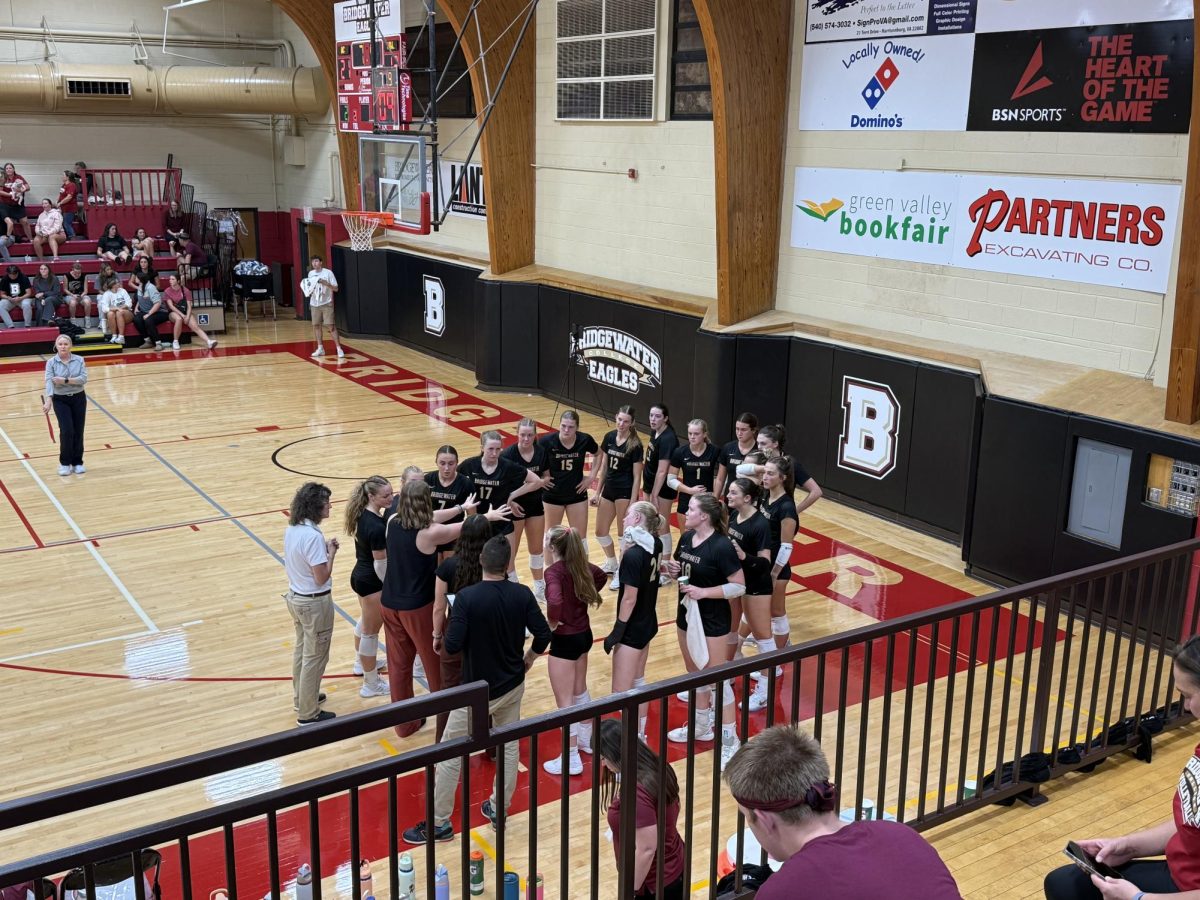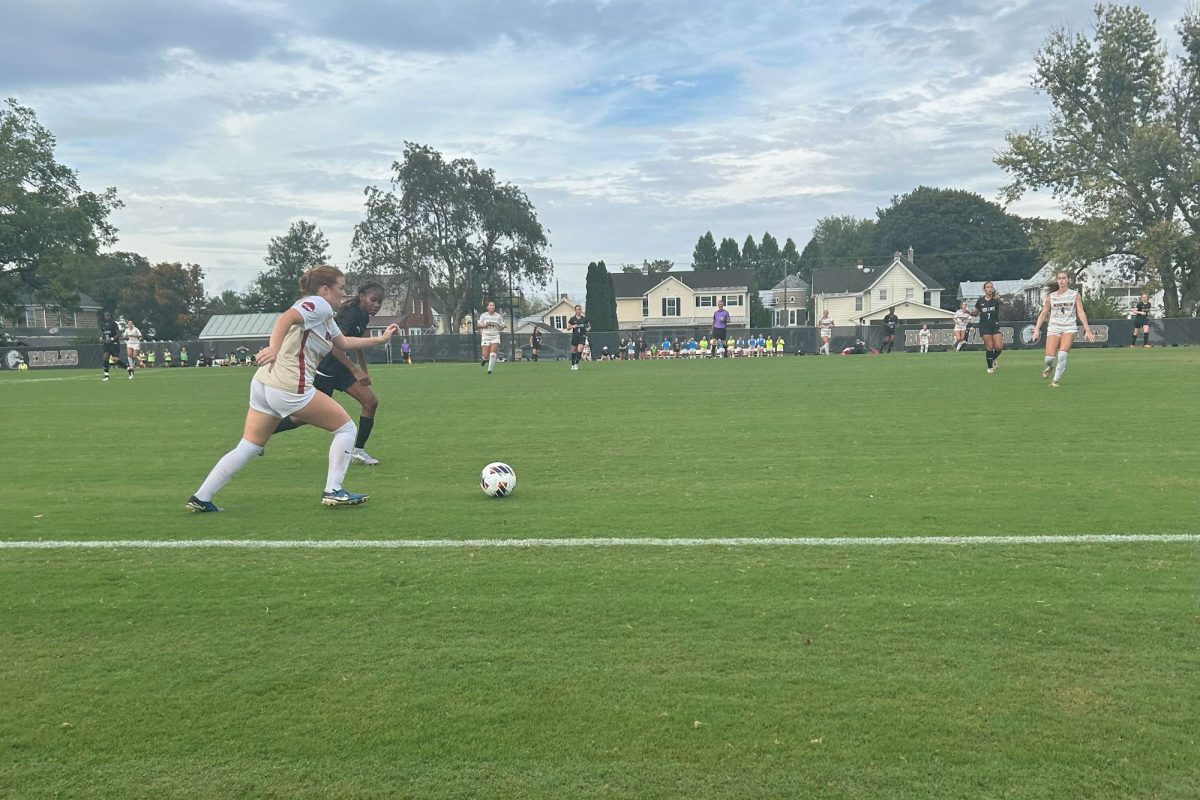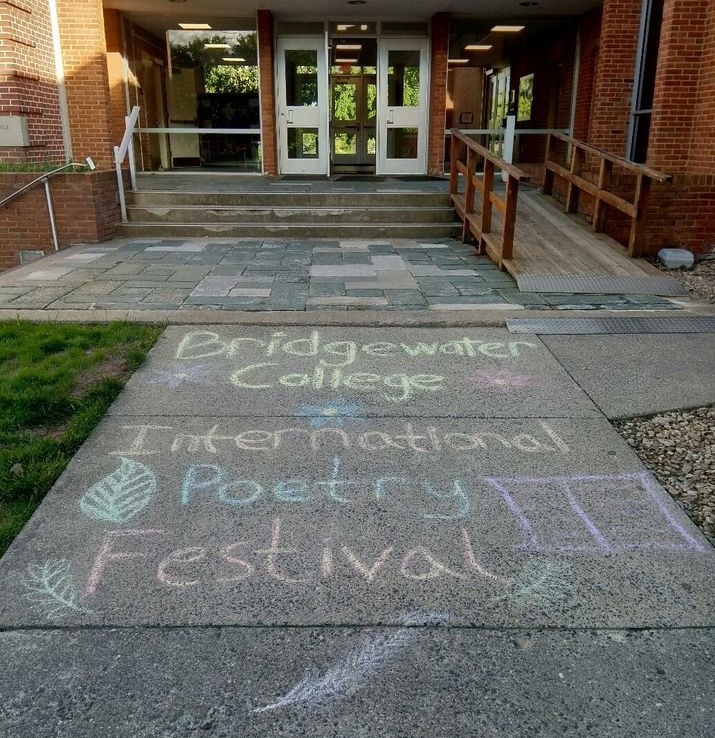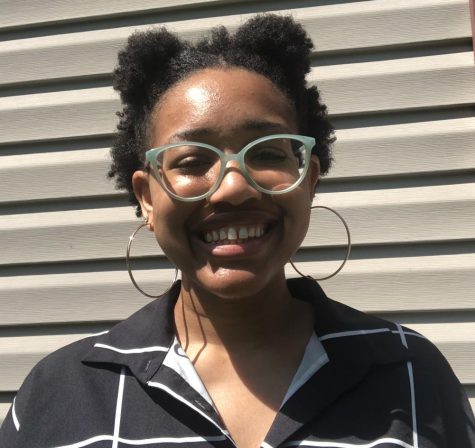Bridgewater International Poetry Festival Launches Nov. 16
Festival Calls Hiatus for 2021
Bridgewater International Poetry Festival Facebook
The Bridgewater International Poetry Festival is advertised outside of the Kline Campus Center (KCC). This year, the BIPF will be virtual through YouTube from Nov. 16 to Nov. 19.
November 17, 2020
Bridgewater, Va. – From Nov. 16 to Nov. 19, the annual Bridgewater International Poetry Festival (BIPF) will be held online. The event features poetry readings from national and international poets, but the future of the BIPF remains undecided.
The first poetry festival took place in January 2013 and was created by English professor Stanley Galloway and English instructor Nicole Yurcaba. The course was designed to be a “travel-course-in-reverse,” according to Galloway.
“Because travel during Interterm (now May Term) is too expensive for some students, we wanted to create a course where the world came to us, rather than taking the students to the world,” said Galloway.
BC administration allowed the festival to use space in various buildings but provided no funding.
Through donations and registration fees, Galloway and Yurcaba offered meals and housing for the international poets, “allowing students to have that interpersonal interaction that we intended from the beginning,” said Galloway.
Over the last seven years, BIPF has hosted approximately 400 poetry readings. Many poets return year after year.
“We’ve had poets from Canada, Egypt, Jamaica and Zimbabwe multiple times. We’ve had non-poet participants travel from as far away as Thailand to hear the performances,” said Galloway.
Due to COVID-19, the 2020 festival, scheduled for May, was canceled.
Galloway and Yurcaba chose to hold the festival online in the Fall 2020 semester by asking poets to submit their work through five-minute video submissions. Galloway and Yurcaba were surprised when they received nearly 150 poetry submissions.
“We had planned a two-day event, anticipating a need for about 25 poets. To our amazement, we received nearly 150 submissions from 15 countries. We expanded to four days, but even then, had to turn away two-thirds of the submissions,” said Galloway.
Yurcaba chose to incorporate the poetry festival into her curriculum for the publishing and marketing class. Senior Emily King, a student collaborator for the BIPF, first became involved with the festival by enrolling in the class.
“The students in the class participated in designing a call for submissions flier, emailing poets and independent presses for video submissions, reviewing video submissions and choosing which ones to include and organizing the submissions in playlists to be uploaded to YouTube,” said King.
Students searched for poets and emailed them to ask if they wanted to be involved with the festival.
“Students logged onto a poetry directory website and found poets to email. Their pages had to be updated within the last few years for us to consider them. Students were put into pairs and assigned letters of the alphabet and asked to reach out to poets,” said King.
The publishing and marketing class involved class discussions on the poetry submissions as well.
“Once we received the submissions, we were then able to watch and review each video to determine who would be included in the festival,” said senior Morgan Duncan, who is also in the class. “Class sessions have been predominantly discussion-based as we had to come to some sort of consensus about which poets should be included in the festival.”
While the BIPF receives submissions from poets worldwide, the future of the festival is uncertain due to recent SRA-related decisions.
Provost Leona Sevick informed Yurcaba that her contract would not be renewed at the end of this academic year, which affects Yurcaba’s involvement in the festival. For Galloway, the loss of the BIPF is “one I would personally feel the most.”
“With half the leadership for this event cut, we are calling a hiatus for BIPF for 2021, while we again have to rethink how to make this festival work, either at Bridgewater College or elsewhere, and what new parameters we need to navigate,” said Galloway.
For some students in the publishing and marketing class, collaborating on the BIPF has given them opportunities for growth as individuals.
“Professor Yurcaba is very knowledgeable about these industries and has provided real-world opportunities for learning and individual growth. I now have experience organizing a fairly large event that will look great on resumes no matter what career I choose,” King said. “I also have learned so much about international cultural values and norms from several different countries.”
Similarly, Duncan is excited to share the work that all the students in the class were able to incorporate into this year’s festival.
“Despite having to change the layout of the festival and how poets were able to read their work, it has still been very successful. There were some concerns about how many poets would submit work virtually, but the turnout was much bigger than anyone anticipated. Every single poet that submitted was so kind and had incredible work to share with us,” said Duncan.
For featured poets and attendees, the BIPF has aided in creating a group of individuals sharing poetry around the world.
“My gratitude to you and your student army for a very special opportunity to be connected to so many around the world through the magic of words. I took home a deep sense of community, which I haven’t felt in a long time,” said Patsy Asuncion, author of the poetry collection “Cut on the Bias.”
“We have poured so much of our lives into this recurring event that it is difficult to imagine what the future looks like without the festival on campus,” said Galloway.
Poetry submissions will be available on YouTube playlists starting Nov. 16 at noon.

